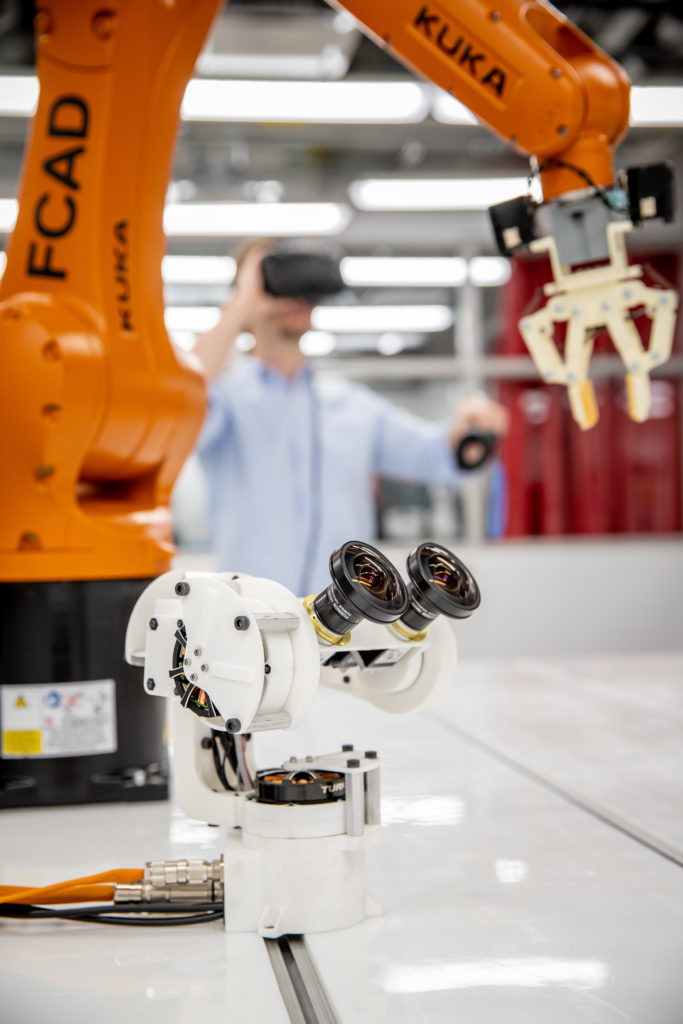The autonomous microfactory
The architectural, engineering and construction sectors face significant unmet demands around industrial innovation and labour productivity, which were exacerbated by COVID-19 when many manufacturing processes had to shut down due to lockdowns and the need for social distancing.
In a two-year pilot project, the Design + Technology Lab at Toronto Metropolitan University — a microfactory manufacturing model — aimed to address these challenges to allow production to continue and adapt by developing a curriculum to introduce the technology, equipment and processes essential to operating an agile microfactory to employers and workers in a two-week intensive training program.

This project developed seven workshops to be delivered over a two-week intensive period, to increase skills in on-demand production, rapid iteration and fabrication of specialized products and niche manufacturing to increase productivity, efficiency, and innovation capabilities using new technologies for contactless fabrication and autonomous construction.
However, in light of pandemic-related supply chain disruptions, production backlogs and high turnover in the tech sector, employers that had shown interest in participating in the pilot did not end up taking part. Therefore the curriculum which was successfully developed by the Creative Technology Lab has yet to be delivered or assessed.
A key lesson learned from this project is the importance of partnership development. Without employers formally committing to training efforts, projects risk having no end user for their training programs, regardless of how effective it may be.




